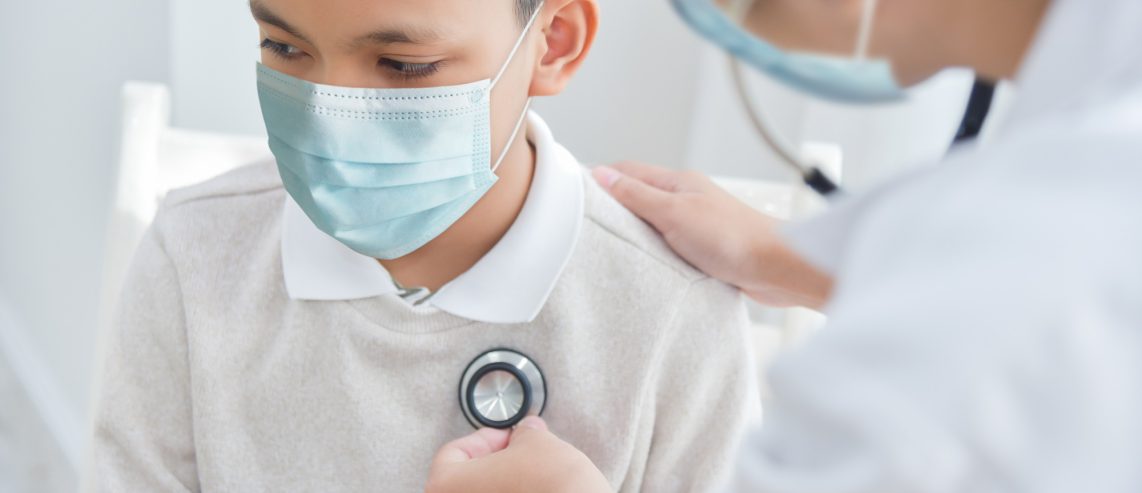At UPMC Children’s Hospital of Pittsburgh, we treat patients of all ages from around the world.
Our Interventional Cardiology program is a key part of the world-renowned Heart Institute. It has had a major impact on congenital heart disease (CHD). The program continues to receive outstanding national ratings and awards.
Let’s look at some of our team’s accomplishments over the years. We’ll learn about the knowledge they bring to UPMC Children’s.
1977: The Park Blade Septostomy Catheter and blade atrial septostomy procedure.
Sang Park, MD, designed the Park Blade Septostomy Catheter and blade atrial septostomy procedure. This creates an opening between the two upper chambers of the heart. It’s usually performed on infants and children with cyanotic CHD. This procedure improves oxygen levels.
Never Miss a Beat!
Subscribe to Our HealthBeat Newsletter!
Thank you for subscribing!
You can now select the specific newsletters you'd like to receive.
You are already subscribed.
Subscribe to more newsletters in our email preference center.
Sorry, an error occurred. Please try again later.
Get Healthy Tips Sent to Your Phone!
It also treated patients with a thick interatrial septum. Before then, the standard balloon atrial septostomy did not work for them.
1990s: Early adoption of transcatheter atrial septal defect (ASD) device closure.
An atrial septal defect (ASD) is an opening in the heart between the right and left atria. This can cause the right side of the heart to enlarge and the lung to receive excess blood flow. Transcatheter ASD device closure is a procedure that closes an ASD. This procedure can avoid the need for open-heart surgery.
Our institute was also an early adopter of the Amplatzer® Septal Occluder (ASO) device. This became the standard of care for ASD closure.
Our experts have gotten involved in advancing transcatheter ASD device closure technology. They often use the Gore® Cardioform ASD Occluder device.
2007 to Present: Clinical device trials and improvements.
Our Interventional Cardiology program participates in groundbreaking clinical device trials. The program values innovation to:
- Improve clinical outcomes
- Reduce the need for open-heart surgery
Our specialists often take part in national and global quality improvement programs. The team at UPMC Children’s seeks constant improvement and innovation. They provide thorough, state-of-the-art care to your child at every stage.
2010: First commercial U.S. transcatheter pulmonary valve implant (Melody™ TPV).
Jacqueline Kreutzer, MD, FACC, FSCAI, performed the first U.S. Melody™ TPV implant after FDA approval. This introduced a new option for surgical valve replacement. Since its approval, the Melody™ TPV has:
- Restored pulmonary valve function
- Postponed surgical reintervention in patients around the world
Dr. Kreutzer is co-director of the Heart Institute at UPMC Children’s. She continues to improve the program with her knowledge and skills.
2020: Pioneered congenital heart disease clinical outcomes research.
In the current decade, our team has become a leader in CHD clinical outcomes research. Bryan H. Goldstein, MD, is co-founder and vice president of the Congenital Cardiac Research Collaborative (CCRC). This research and quality improvement group:
- Is made up of congenital cardiologists and cardiac surgeons from across the U.S.
- Perform research and clinical trials
- Aims to advance care and improve results for children and adults with CHD.
Dr. Goldstein joined UPMC Children’s in 2019. He leads as director of the Cardiac Catheterization Laboratory and Interventional Cardiology service. Dr. Goldstein brings advanced academic expertise and outstanding clinical care to our team.
2021 to 2022: At the forefront of new pulmonary valve implants.
Our program was among the first centers worldwide to implant new pulmonary valves. These devices, known as the Harmony™ TPV and Alterra Adaptive Pre-Stent + Sapien 3 THV, can:
- Treat pulmonary insufficiency. This condition occurs when the pulmonary valve doesn’t function
- Offer a new, minimally invasive alternative to surgical pulmonary valve replacement.
Our team performed the first transcatheter pulmonary valve replacement (TPVR) procedure. This was part of the Harmony™ TPV Post Approval Study. This kept UPMC Children’s role as a TPVR leader.
These devices began a new era for treatment of pulmonary valve conditions. Our experts are well-established leaders in this field.
Why experience matters
Our team has the expertise and resources to provide outstanding care. We have experience treating patients of all ages at the Interventional Cardiology program.
We are proud of the milestones and accomplishments of our Interventional Cardiology experts. Their expertise enhances our program and the services that we provide patients.
To learn more about our Interventional Cardiology program, visit www.chp.edu/heart. Or, call us 412-692-5540 to make an appointment.
About Pediatrics
From nutrition to illnesses, from athletics to school, children will face many challenges growing up. Parents often will make important health care decisions for them. We hope to help guide both of you in that journey. UPMC Children’s Hospital of Pittsburgh is a national leader in pediatric care, ranking consistently on U.S. News & World Report’s Best Children’s Hospitals Honor Roll. We provide expert treatment for pediatric diseases, along well-child visits, urgent care, and more. With locations across Pennsylvania, Maryland, and West Virginia, you can find world-class care close to home. We also work closely with UPMC Magee-Womens Hospital, a national leader in care for newborns and their mothers. Our goal is to provide the best care for your children, from birth to adulthood and beyond. Visit our website to find a doctor near you.
